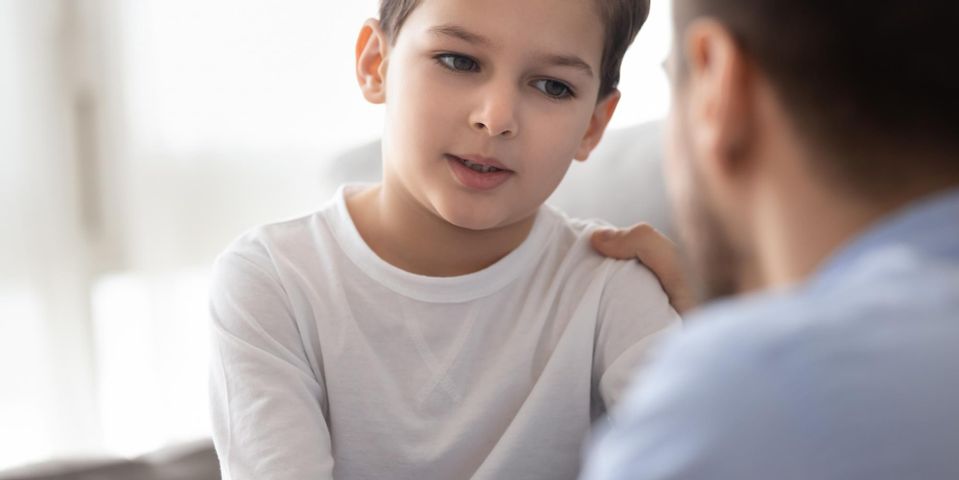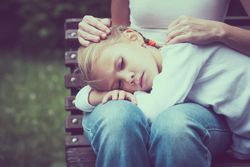How to Tell a Child That a Grandparent Has Cancer

Cancer is not just a disease that impacts the person who has it; it can also make a great impact on their loved ones. While this diagnosis can be difficult for families to discuss, it’s something that should be shared in a sensitive and honest manner, especially when it comes to talking with children. If you need to have a discussion with your child about a grandparent’s cancer diagnosis, here are a few tips that can help you navigate the conversation with confidence.
3 Tips for Talking to Kids About a Grandparent’s Cancer
1. Encourage Emotional Expression
Children, especially younger ones, will often mimic the emotions of the adults in their lives. That’s why it’s important to approach the subject of cancer in a calm and supportive fashion. While expressing that you are here for your child in this difficult time, you should also allow them to express emotions naturally as they come up.
 Let your little one know that is perfectly healthy to cry or feel angry. If they aren’t in the mood to talk about their feelings, you might also encourage them to write or draw as a way of self-expression. If they are having trouble coping with the news, consider speaking to a family therapist who can help with the unique aspects of this kind of grieving process.
Let your little one know that is perfectly healthy to cry or feel angry. If they aren’t in the mood to talk about their feelings, you might also encourage them to write or draw as a way of self-expression. If they are having trouble coping with the news, consider speaking to a family therapist who can help with the unique aspects of this kind of grieving process.
2. Set Expectations in an Age-Appropriate Manner
Cancer is a complicated disease, but when you’re explaining it to children, it’s important to be as clear as you possibly can. By taking your child’s age into consideration, you may only need to state that their grandparent has a disease called cancer. If they are older, you might specify which type of cancer they have.
If you don’t know information, don’t make assumptions. Children, however, should know that the condition is not contagious. Older kids might also benefit from knowing the basics of cancer treatment. Explain that while the results cannot be guaranteed, modern medicine can be effective.
3. Answer Questions With Simplicity
It is likely that your child will have questions about their grandparent’s cancer. While you may not have answers to every question, it’s important to provide those you do know. As you answer questions, try to keep your responses as simple as possible. For example, if your child asks about the effects of cancer treatment, you might explain that it could make their grandparent tired or weak and that they will need to rest more than usual.
Talking about cancer with any family member can be tough, but having the right information can make it a much easier process. If you have concerns about this disease, Alaska Oncology and Hematology, LLC can help explain everything, from diagnostic test results to cancer treatment options, in a compassionate and knowledgeable fashion. To learn more about these specialists and the services they provide, visit this Anchorage oncology clinic online. For appointments, call (907) 279-3155 to speak with a caring team member.
About the Business
Have a question? Ask the experts!
Send your question

